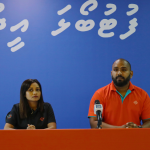Beneath the turquoise waters and white sand beaches synonymous with the Maldives lies a complex story of women’s evolving role in the workforce and business landscape. In recent years, the Maldives has made significant strides in women’s education and empowerment. Yet, ingrained societal norms and structural barriers continue to hinder their full economic potential. This International Women’s Day, with its theme of “Invest in Women: Accelerate Progress,” the Maldives provides a compelling case study of challenges and opportunities on the path to true gender equality.
Progress and the Persisting Gap
The Maldives boasts one of the highest female literacy rates in South Asia. More women are graduating from universities and entering the workforce than ever before. However, this increased education hasn’t translated into equal job opportunities. Women are disproportionately concentrated in lower-paying sectors like tourism and remain underrepresented in leadership positions across both public and private sectors.
Traditional gender roles persist, with women shouldering the bulk of domestic and caregiving responsibilities. This double burden limits their ability to pursue careers, participate in entrepreneurship, and contribute fully to the economy. A 2021 study by the International Labour Organization (ILO) found that Maldivian women spend an average of four hours per day on unpaid care work, compared to just two hours for men.
Entrepreneurial Spirit with Limited Mobility
Many Maldivian women have turned to entrepreneurship, particularly in home-based businesses, as a way to balance work and family demands. While this sector provides some degree of flexibility, it often traps women in informal businesses with limited growth potential. Access to finance, skills training, and market linkages remain significant barriers for female entrepreneurs.
A Supportive Policy Landscape, Slowly Evolving
Despite challenges, there are promising signs of progress. The government has enacted policies aimed at promoting gender equality, including a Gender Action Plan and a recent Flex Work Policy. Notably, the government offers women six months of paid maternity leave, a significant support system that allows them to re-enter the workforce with greater ease. Civil society organizations are actively advocating for women’s rights and providing support to female entrepreneurs. More companies are recognizing the value of gender-diverse workforces.
Investing in Women: A Catalyst for Sustainable Development
The path forward in the Maldives demands a multi-faceted approach. Investing in girls’ education must remain a priority, along with reforms to address workplace discrimination. The provision of affordable childcare services is crucial to enable women to fully participate in the workforce. Supporting women-led businesses through access to funding and mentorship is essential for creating a more robust and inclusive economy.
Importantly, shifting cultural mindsets around gender roles is vital. Engaging men and boys in conversations about gender equality and shared household responsibilities is necessary to create lasting change.
Investing in women in the Maldives is not just about fairness; it’s about sound economic strategy. Studies consistently show a strong correlation between gender equality and a nation’s overall development. By harnessing the full potential of its women, the Maldives stands to reap the benefits of a more inclusive, dynamic, and resilient society. This International Women’s Day, the call to invest in women resonates strongly with the Maldivian journey toward a future where every woman has the opportunity to thrive.



















